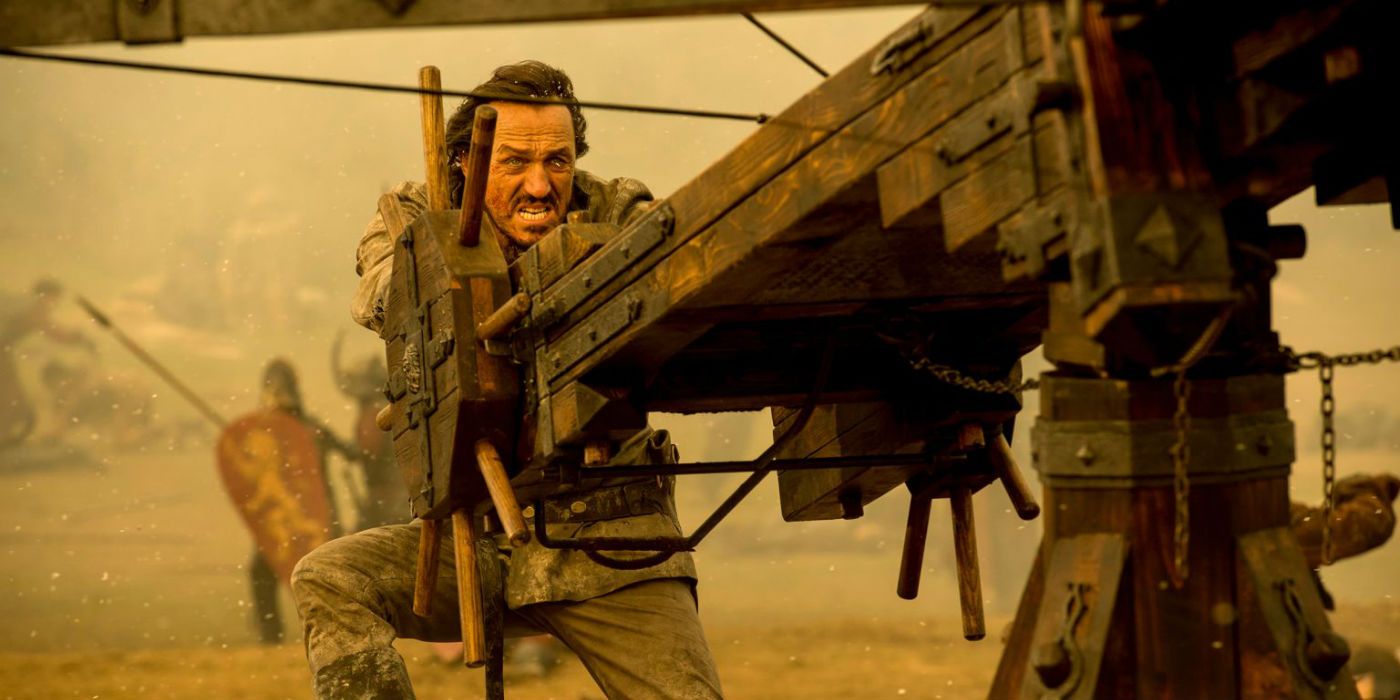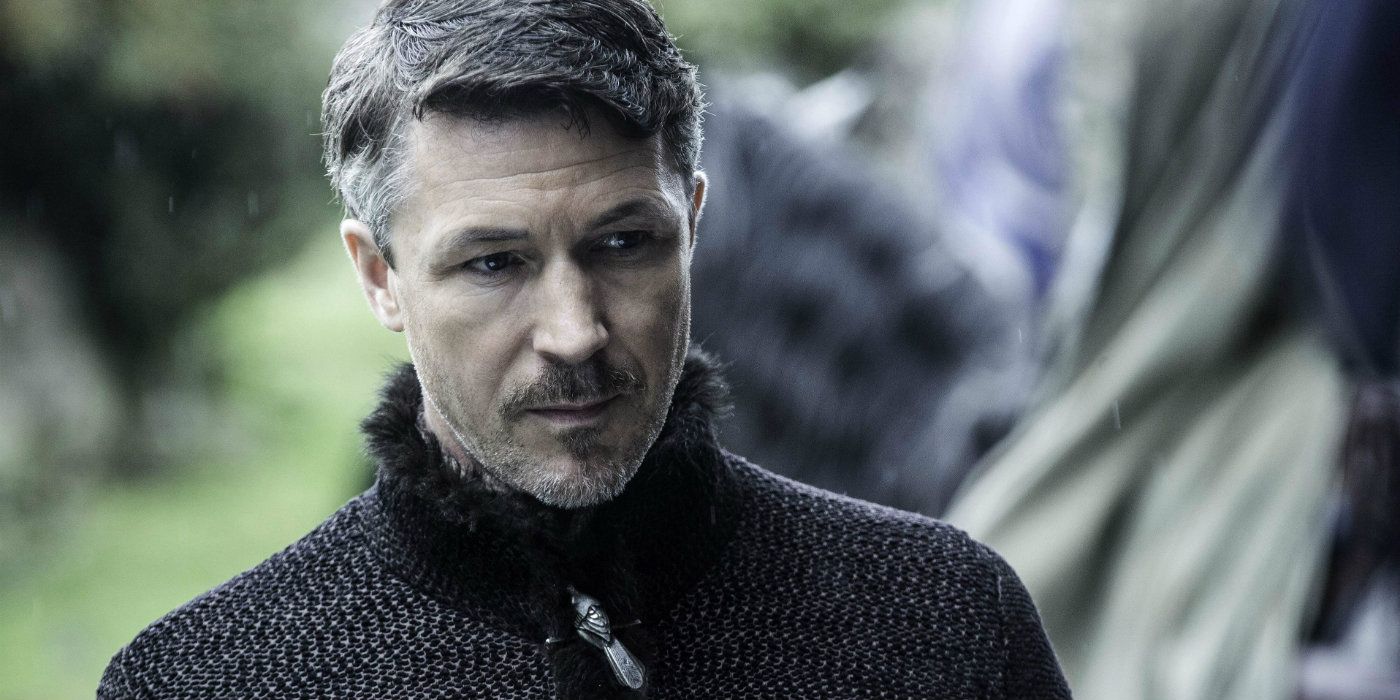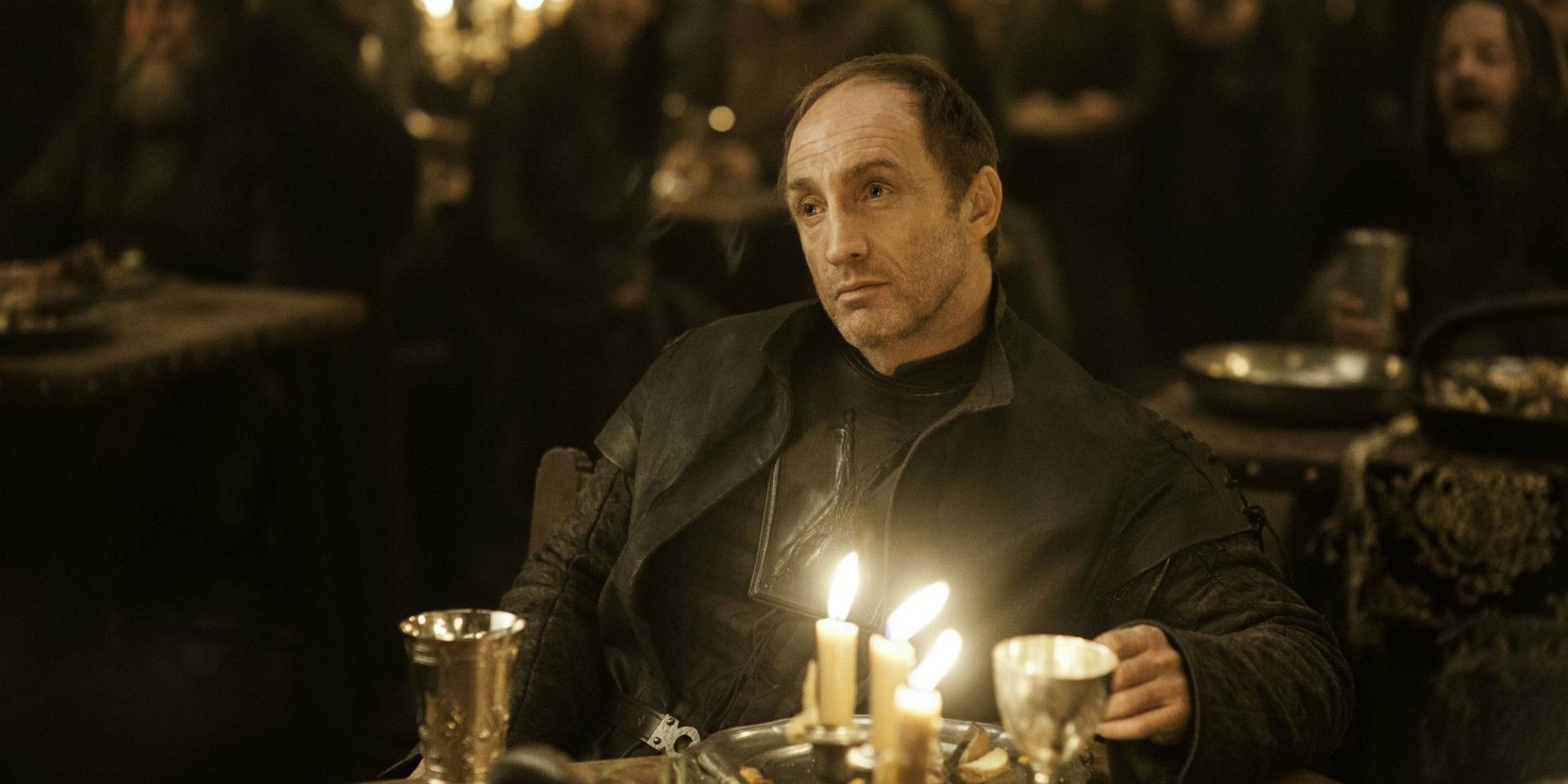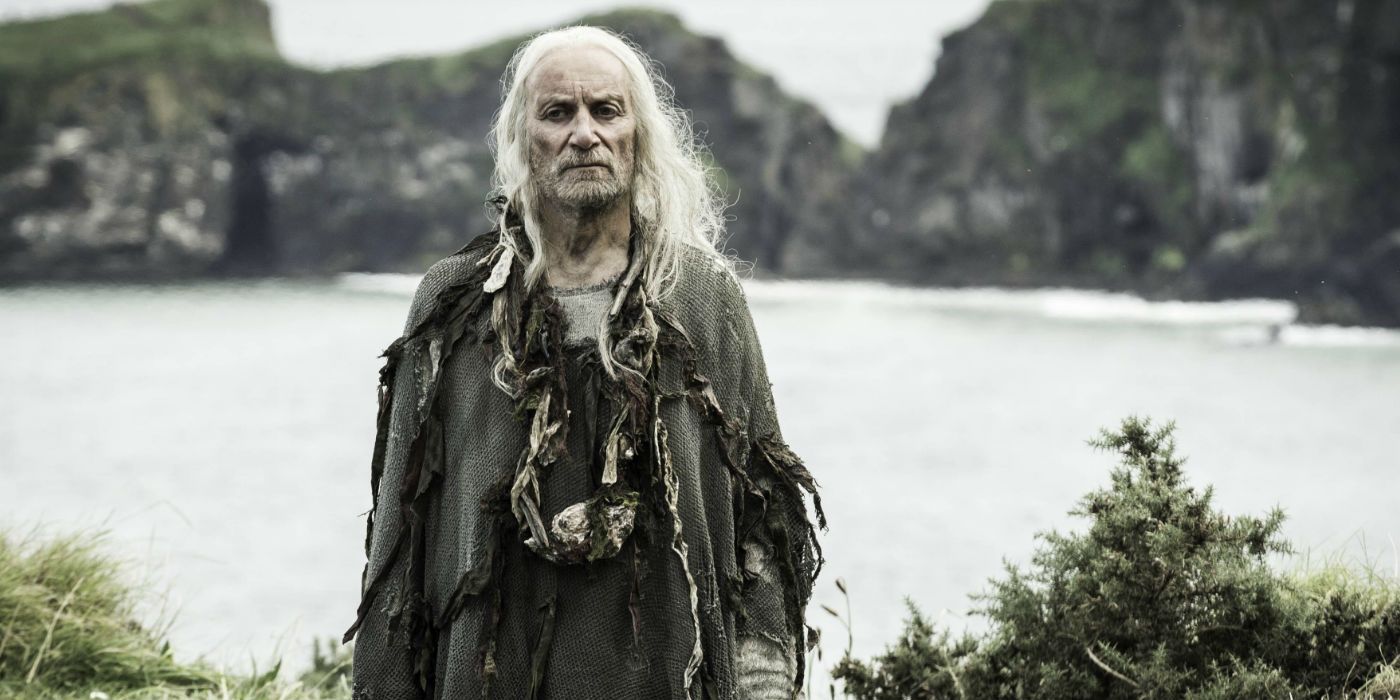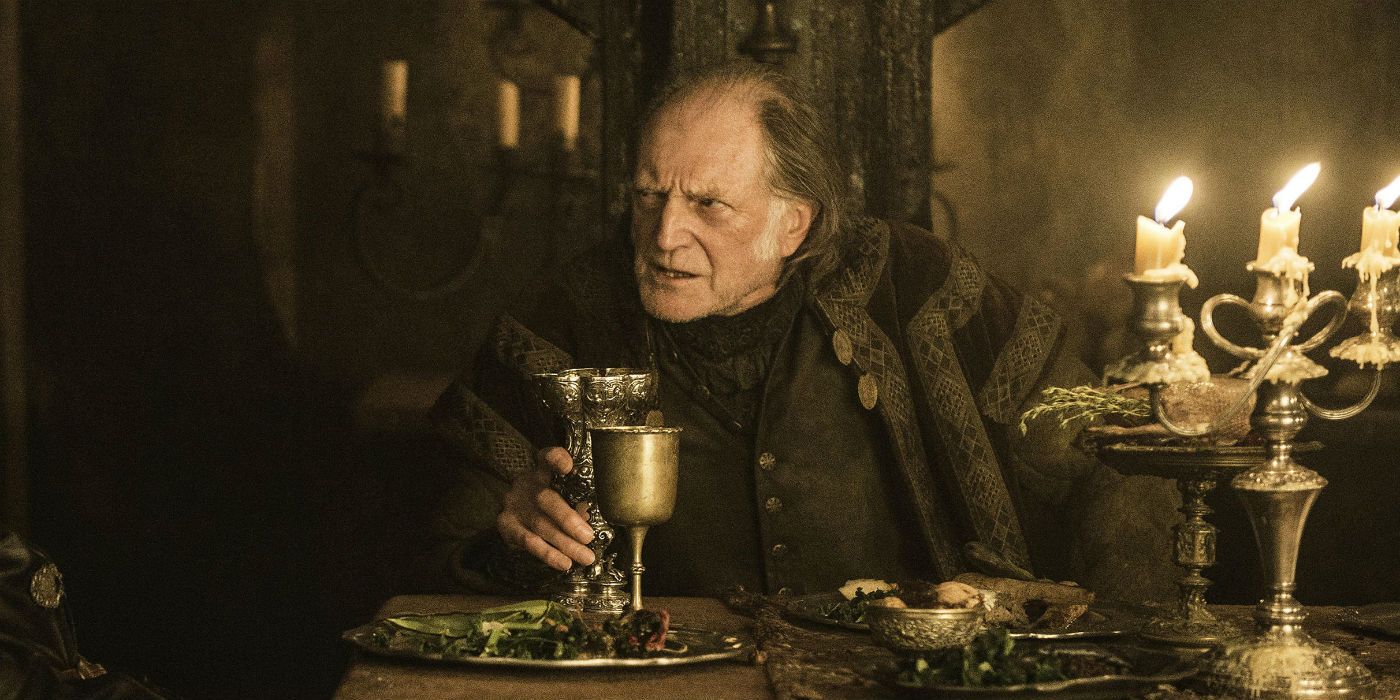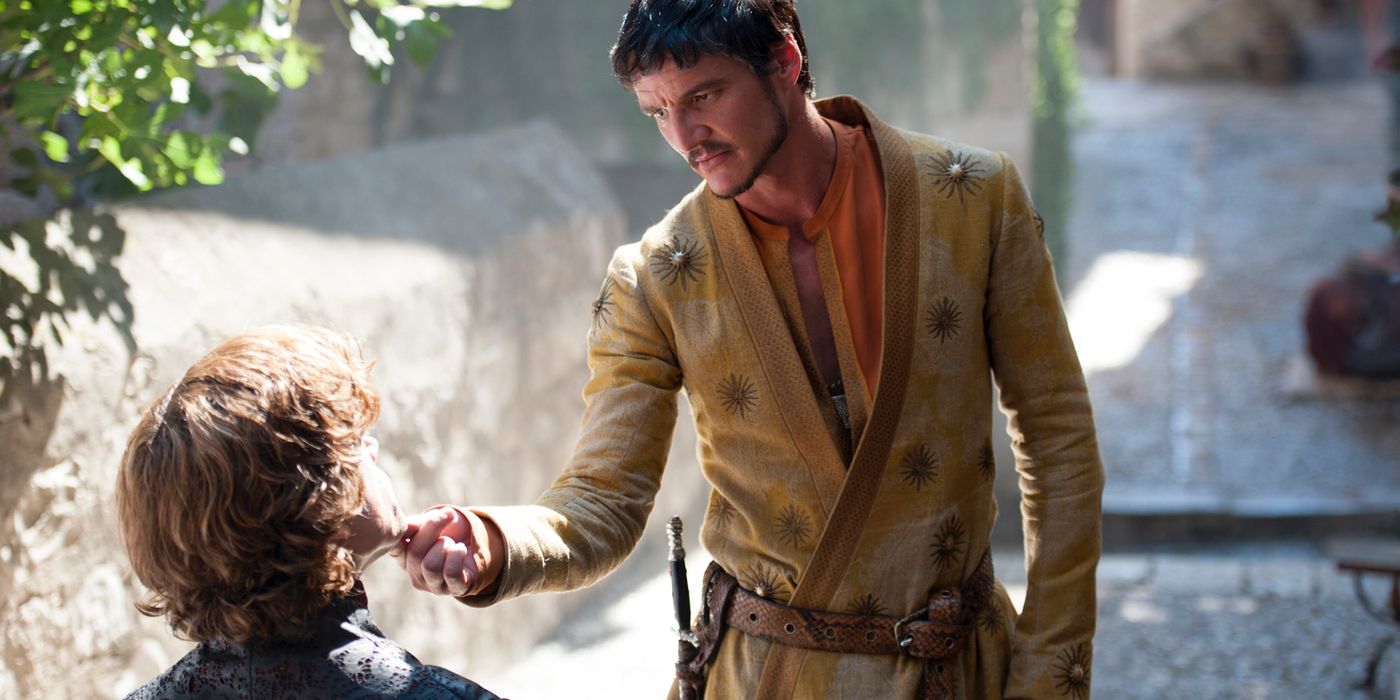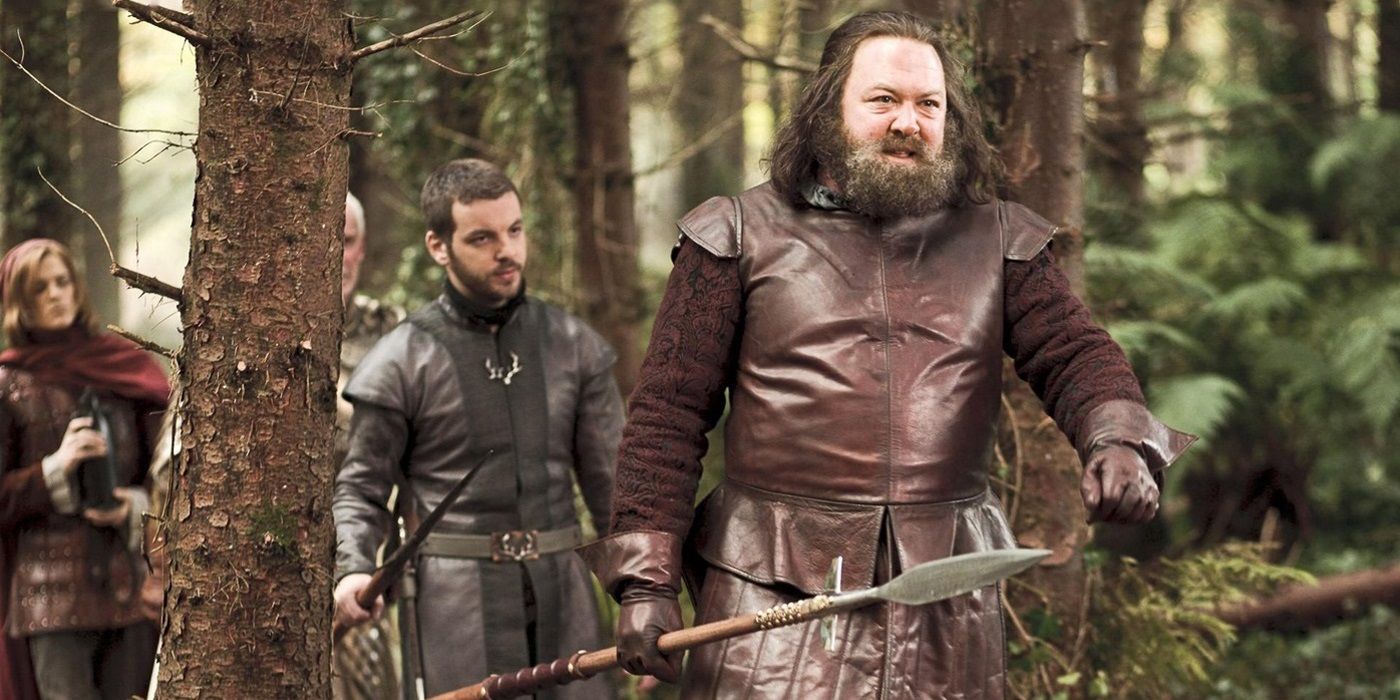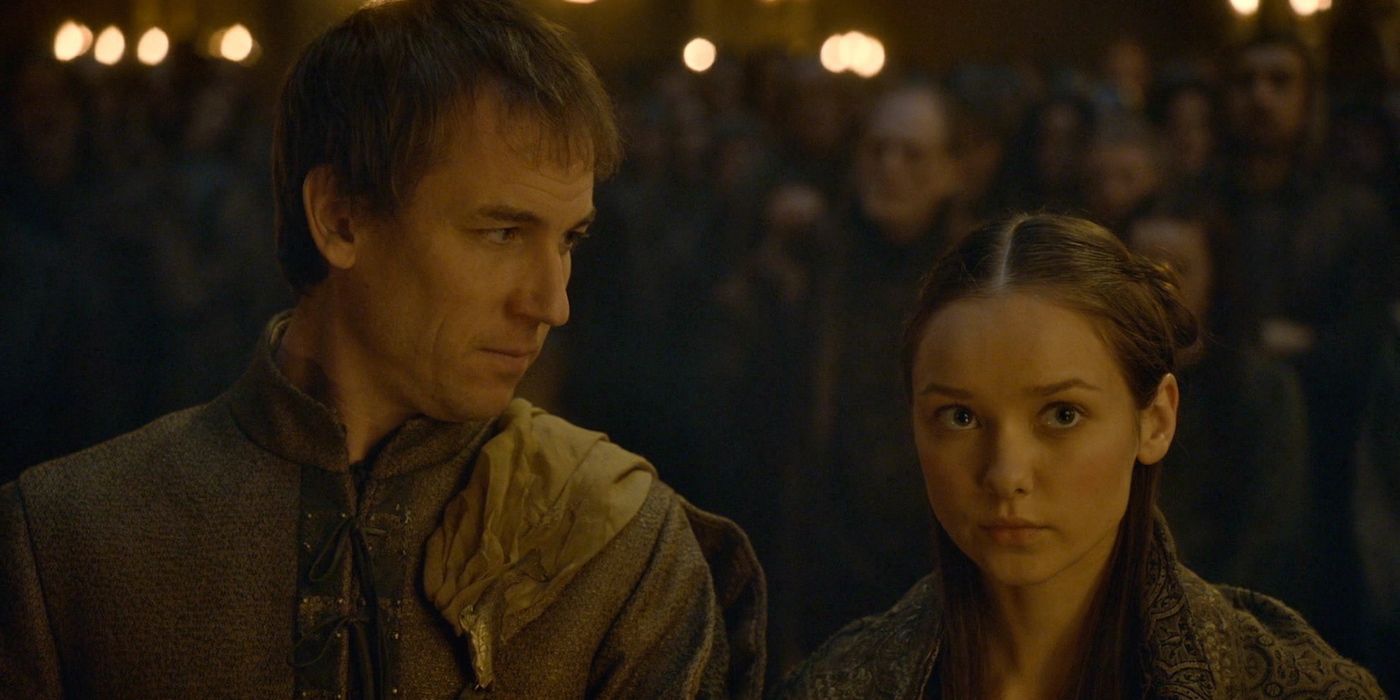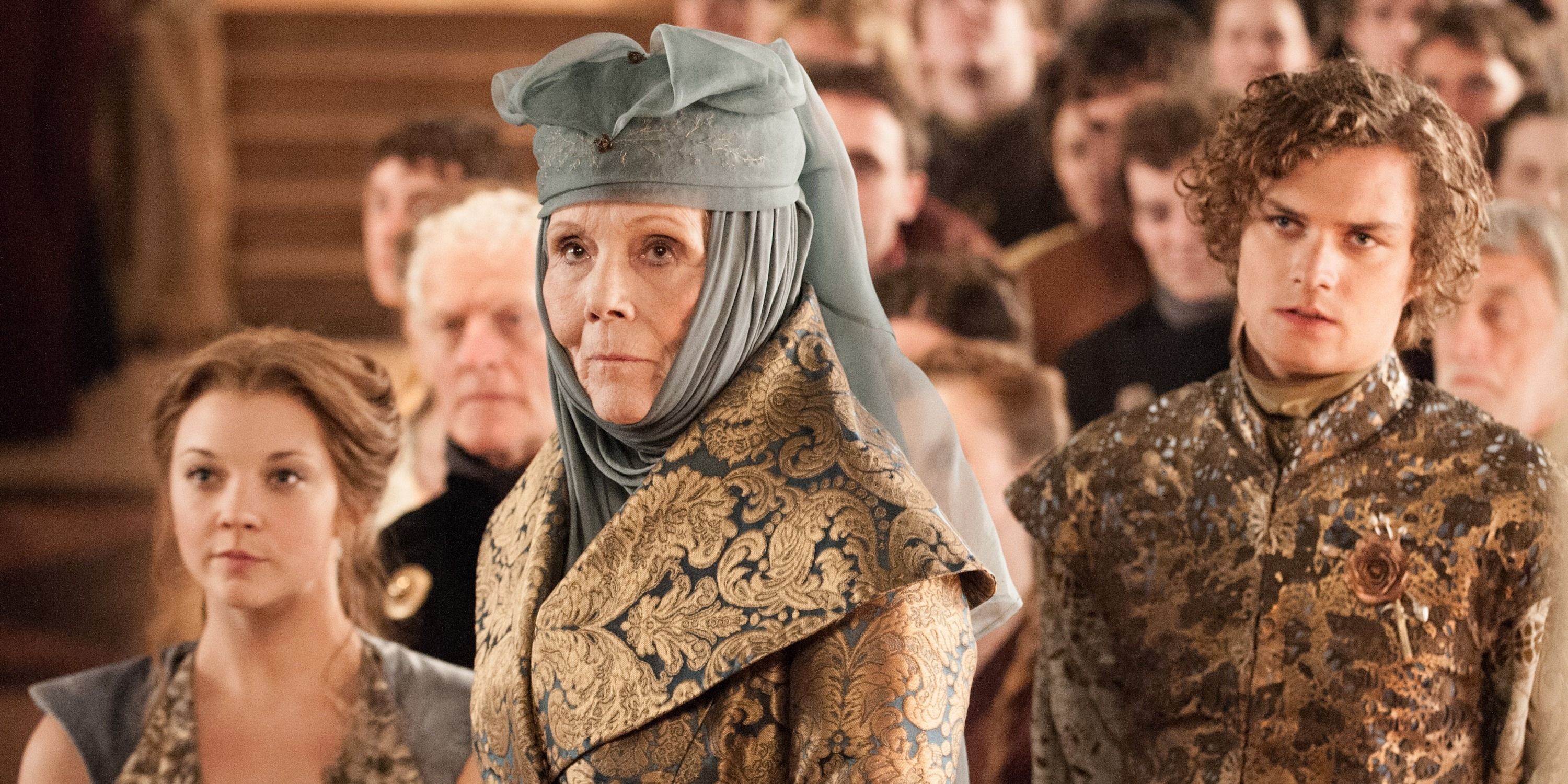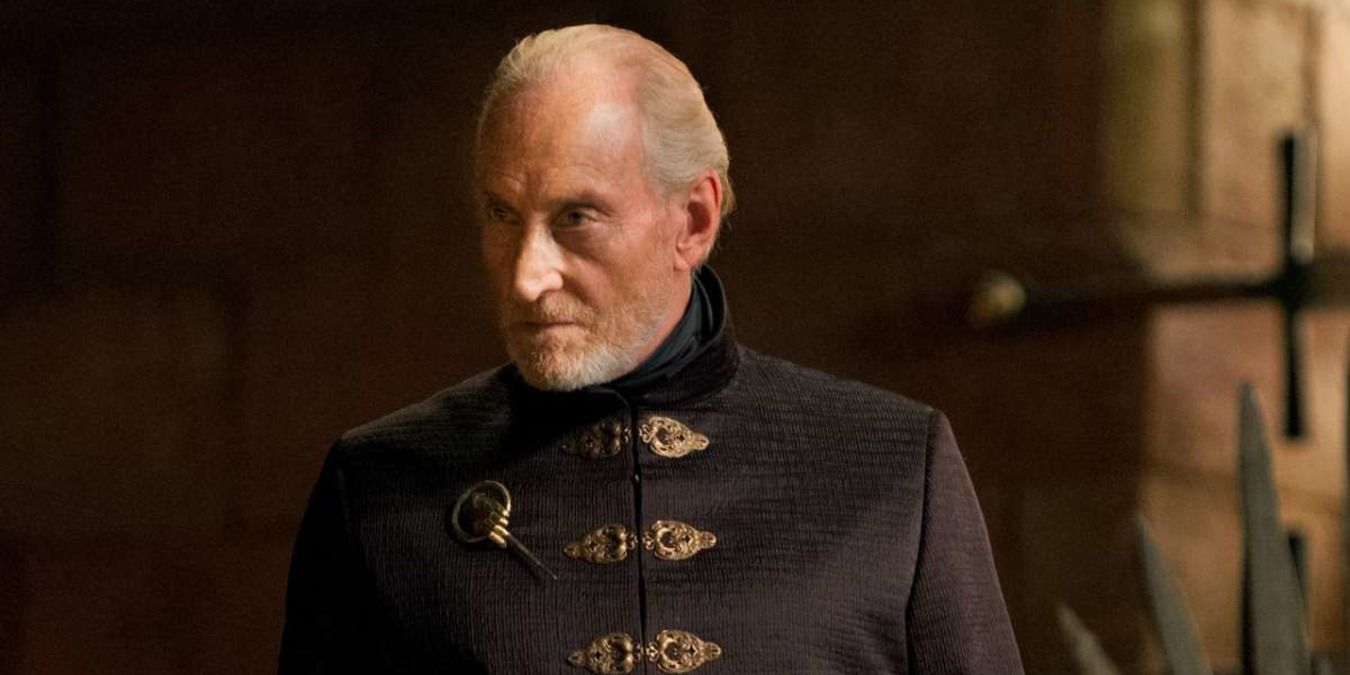Anyone who has watched all eight seasons of Game of Thrones will know that houses in Westeros can rise and fall seemingly overnight, even the Great Houses of Westeros. The Great Houses are the houses that lord over their entire kingdom, like the Starks do with the North, the Arryns do with the Vale, or the Lannisters do with the Westerlands. They are the most powerful families in all Seven Kingdoms, and before the start of the Targaryen dynasties, most of these families were the kings of their own kingdoms as well.
It's hard to measure the monetary worth of anything in a fantasy universe, but there are a few things in any world, whether they're real or imagined, that are pretty undeniably valuable. Most of the ancient Great Houses came into their holdings in different ways, and understandably some are much richer than others. So these are all of the Game of Thrones Great Houses, ranked by economic value.
Updated on December 21st, 2021 by Hilary Elizabeth: Although many of the Great Houses of Westeros were firmly established throughout the course of Game of Thrones, some houses managed to become the rulers of their kingdoms during the series, even if they didn't hold on to them for good.
House Blackwater
Bronn of the Blackwater somehow managed to scam his way from being an average but talented sellsword to the actual Lord of Highgarden, which is an extraordinary financial leap. However, as a single man who is very newly made, it's safe to say that his position in Westeros is tenuous.
He may be in possession of one of the most valuable lands in all Seven Kingdoms, but with one wrong move, he could lose it all. And aside from the lands that he's been granted by the crown, he really has nothing else of value to his name, possibly meaning that House Blackwater could be nothing more than a flash in the pan.
House Baelish
It's astounding that House Baelish isn't the poorest Great House in Westerosi history, as this lower noble house was essentially broke until Littlefinger worked his way up through the ranks.
He first made his name by managing the wealth of Gulltown in the Vale and becoming Master of Coin for the entire country obviously provided a huge boost to the bank account of House Baelish. He was granted Harrenhal and basically had political control of the Vale, but he still couldn't match the affluence of most major houses in the Seven Kingdoms.
House Bolton
The Boltons were one of the oldest and most established houses in the North, and they were a legitimate threat to House Stark for many centuries. However, they were still just a vassal house to the Starks for a very long time, meaning that they couldn't acquire the kind of wealth that most long-running Great Houses could.
Becoming Wardens of the North was a big boost. But obviously, they couldn't hold on to that seat for long, so it almost certainly didn't enhance their net worth very much.
House Greyjoy
House Greyjoy may be one of the Great Houses of Westeros, but the kingdom that they rule over is probably the least valuable in all Seven Kingdoms. The Iron Islands are small and inhospitable (and as fans all know, their house words are literally "We Do Not Sow", so no farmers here), and the population of the islands is low in relation to the rest of the kingdoms, but because the islands are so small it still puts a strain on their resources.
The only natural resource they really have is fishing and their mines for iron and tin. Their crown jewel is undoubtedly their navy, but they'd have a difficult time doing anything completely self-sufficiently and have to rely on the other kingdoms for their own survival.
House Frey
House Frey may not have been a particularly respected house, but they certainly were a rich one. The strategic location of their familial seat allowed them to make themselves outrageously wealthy, enabling them to compete with much older and more established houses.
The holdings of House Frey also grew considerably when Walder Frey became the patriarch, as his brutal but savvy mind allowed him to make great gains for his family long before usurping the Tullys at the Red Wedding.
House Stark
The High Lords of the North may be one of the oldest and most well-respected houses in Westeros, but the very nature of the North essentially prevents them from building any significant wealth on the level of most other Great Houses.
They're lucky to be the wardens of the largest kingdom in Westeros, but the land is barren enough and the population is sparse enough that their prospects as farmers are bleak, and taking advantage of any natural resource is difficult. The most valuable trading resource the North has is its timber, and the North is also home to a few silver mines, but that isn't nearly enough to make any Great House rich.
House Arryn
House Arryn is the Great House that rules over the Vale Of Arryn, and although its vast mountain ranges isolate it from the rest of Westeros, the valleys of the Vale are home to grain farms that produce a significant amount of wheat, barley, and corn.
Clearly, the Vale can't compete with the farming levels of the Reach, both because of their size and because of how much of their land is actually suitable for farming. But their produce is still renowned throughout the Seven Kingdoms, and they mine quite a lot of marble from their mountains. And one huge advantage they have over most other kingdoms is that the mountains that surround them protect their resources from any unwelcome invaders.
House Martell
The desert land of Dorne doesn't seem like a literal or metaphorical gold mine for any houses that decide to call it their home, but House Martell has managed to advance their wealth quite a bit regardless. The coast of Dorne is warm and hospitable year-round, so the Dornish have made fine wines along with summer fruits their business and the resources they offer are unique among the Seven Kingdoms.
House Martell also has a significant amount of inherited wealth going back to the point when Mors Martell married the Rhoynish Queen Nymeria, and the location of their seat in Sunspear offers them a very easy avenue to trade with Essos.
House Baratheon
House Baratheon has obviously managed to advance itself further than most other Great Houses of Westeros, but without Robert Baratheon's ascent to the throne, the Lords of the Stormlands undoubtedly would not have been nearly as wealthy.
The Stormlands are a fertile land, but the titular storms make it difficult to reliably cultivate much besides lumber. Ormund Baratheon's marriage to Rhaelle Targaryen certainly bolstered House Baratheon's position, but it was when Robert became king and married Cersei Lannister that the wealth of House Baratheon really exploded. House Baratheon also expanded to three distinct houses, House Baratheon of Dragonstone (led by Stannis), House Baratheon of King's Landing (led by Robert), and the seat at Storm's End was held by Renly.
House Tully
It's hard to rank natural resources as one being more important than another, but it seems safe to say that there will never be any more consistently valuable economic resource than food. And what House Tully has over all of the previous houses is that their land and climate are stable enough for the region to produce a lot of food reliably.
The economy of the Riverlands focuses mostly on fishing, cattle, and crops, and their rivers serve a dual purpose of keeping their land perpetually fertile as well as providing fast and easy transportation for their goods. And with Riverrun positioned at the fork of two major rivers, House Tully is primed to take advantage of all the Riverlands has to offer.
House Targaryen
House Targaryen has always been the living embodiment of the saying "might makes right", and the Targaryens earned their considerable wealth by essentially using dragons to force everyone else to do their bidding. Obviously by the time Game of Thrones starts the house is penniless and in ruins, but Daenerys Targaryen changes all of that.
As she conquers regions of Essos she becomes wealthier and wealthier, building her own army and acquiring all that she needs by sacking the slave cities. And of course, she has three dragons. In theory, the dragons are priceless and therefore she should be at the top of the list, but the final season of the shoe demonstrated, dragons aren't as valuable or invincible as anyone would like to believe.
House Tyrell
When House Tyrell existed they were one of the wealthiest families in all Seven Kingdoms, in fact, their wealth was only surpassed by one house. And while another house may have them beat on literal monetary values of gold and silver, it's hard to deny that House Tyrell is likely the most universally valuable house in all of Westeros.
As the Lords Paramount of the Reach, the Tyrells lead the second-largest kingdom in all of Westeros. The Reach is the highest food producer in the country, and it has the highest population of any kingdom. They export grains, wines, fruits, and vegetables, and with Highgarden at the center of the region, the Tyrells undoubtedly represent the center of its wealth.
House Lannister
The Lannisters would have been a tough family to beat in terms of wealth considering that their region is literally sitting on piles of money. The gold and silver mines of the Westerlands make up more of the gold and silver in all of the other Seven Kingdoms combined, and the Lannister home of Casterly Rock is virtually built atop a gold mine.
Lannisport (obviously named for the Lannisters) is also one of the largest cities and ports in all of Westeros, only King's Landing and Oldtown are bigger. The Lannisters were already born with every advantage, but once Tywin became the leader of their family, their wealth was beyond unmatched.


